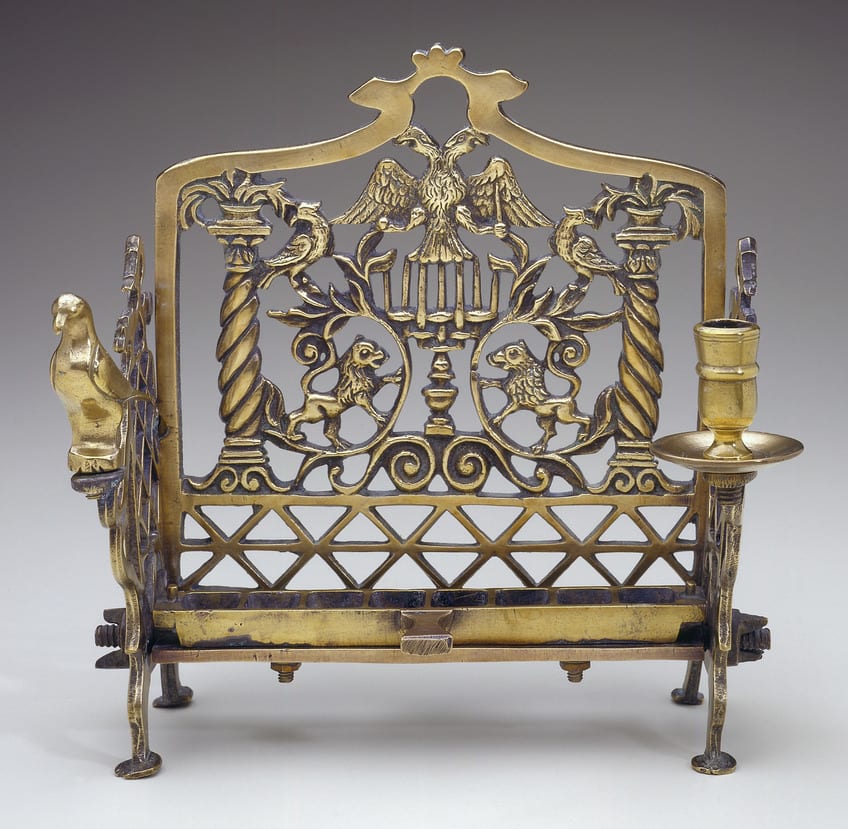
- Object Name:
- Hanukkah Lamp
- Place Made:
- Eastern Galicia or western Ukraine
- Date:
- mid-19th to early 20th century
- Medium:
- Copper alloy: cast
- Dimensions:
- 10 3/4 × 11 × 6 5/16 in. (27.3 × 27.9 × 16 cm)
- Credit Line:
- Gift of the Danzig Jewish Community
- Accession Number:
- D 207
Not On View
In this complex design, a double-headed eagle, flanked by two birds, is placed above a menorah. The latter is guarded by two lions within foliate scrolls. The double-headed eagle was used as a royal emblem by a number of European rulers who claimed a relationship to or descent from Holy Roman emperors. These included the rulers of Germany, Russia, and Austria. The imperial eagle is found on many types of Jewish ceremonial art, part of a larger tradition of honoring the rulers of the countries in which Jews lived and praying for their welfare.
Since the lamp was probably cast in Poland, the inclusion of the double-headed eagle indicates that the design for the backplate would not have been created any earlier than the end of the eighteenth century. It was at that time that Galicia and the Ukraine became part of the Austrian and Russian Empires, and their double-headed imperial eagles were incorporated into Jewish ceremonial art. Further support for this suggestion is provided by an example in the Lvov Museum of Ethnography and Crafts, which has an inscribed date of 1796/97. This and other examples in the Jewish Museum collection would appear to be later versions produced in the second half of the nineteenth century, based on the use of screws to assemble the parts.
Since the lamp was probably cast in Poland, the inclusion of the double-headed eagle indicates that the design for the backplate would not have been created any earlier than the end of the eighteenth century. It was at that time that Galicia and the Ukraine became part of the Austrian and Russian Empires, and their double-headed imperial eagles were incorporated into Jewish ceremonial art. Further support for this suggestion is provided by an example in the Lvov Museum of Ethnography and Crafts, which has an inscribed date of 1796/97. This and other examples in the Jewish Museum collection would appear to be later versions produced in the second half of the nineteenth century, based on the use of screws to assemble the parts.
Information may change as a result of ongoing research.